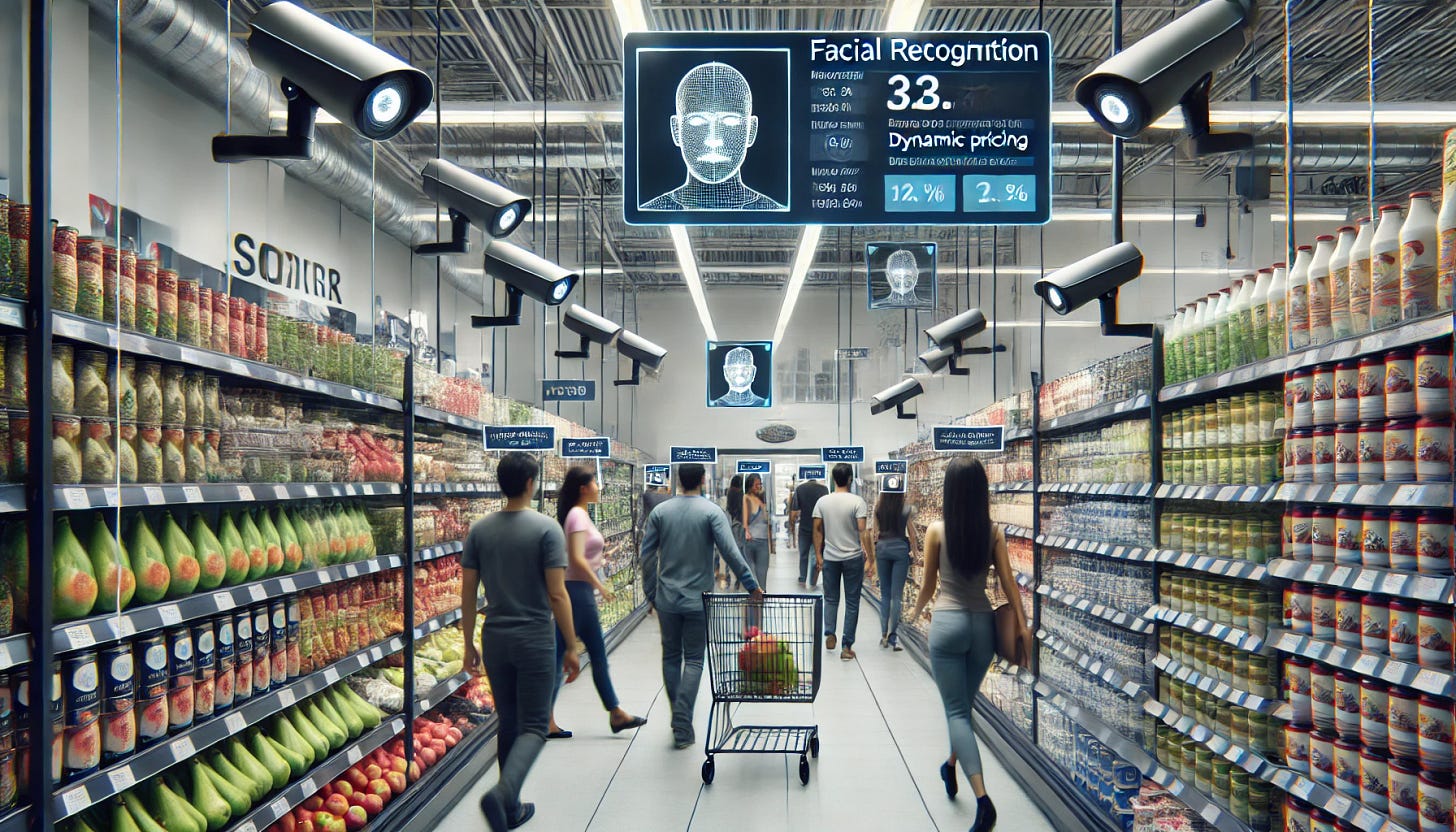The price of convenience: how facial recognition spells the end of privacy
Facial recognition is being rolled out right now, often in subtle ways. Under the guise of making life easier, it’s really about making privacy obsolete.
Imagine walking into a grocery store, browsing the aisles, and noticing that the prices on the shelves are subtly shifting. What you don’t see is a hidden algorithm, powered by facial recognition technology, determining what you’re likely to pay. This isn’t the plot of a dystopian novel — it’s a very real controversy surrounding Kroger, one of America’s largest supermarket chains, and its alleged use of facial recognition in dynamic pricing.
This week, Kroger denied these allegations, insisting that their EDGE (Enhanced Display for Grocery Environment) digital shelf technology does not use facial recognition technology in connection with electronic shelf labels or pricing. Yet the mere possibility has sparked concerns. If retailers can track customers' faces, cross-reference their purchasing habits, and determine what prices they might be willing to accept — mirroring surge pricing models in ride-sharing — then the days of fair and transparent pricing are over. The risk is not just that some consumers will pay more, but that facial recognition technology will become a silent arbiter of economic discrimination.
A world under watch: The WEF’s vision for the future
While Kroger’s denials may hold for now, the global push for facial recognition is undeniable. Just last week, during the World Economic Forum’s (WEF) annual meeting, Pervinder Johar, the CEO of an industrial AI company called Avathon, laid out a vision where digital IDs become obsolete — not because privacy is valued, but because facial recognition will be built into smart cities rendering ID obsolete. Instead, our faces will become our identification, constantly scanned and tracked, with financial transactions, access to services, and even movement through public spaces tied to biometric data.
Turns out, this is already happening now. Avathon deploys AI surveillance systems in Round Rock High School in Texas under the guise of ‘student safety.’ These systems monitor everything from unauthorized access to weapons detection. And if such pervasive surveillance is being introduced in schools, what’s stopping its expansion into every facet of daily life?
Another WEF panelist, Hoda Al Khzaimi from New York University Abu Dhabi, extolled the virtues of Digital Public Infrastructure (DPI), claiming it ensures seamless government services in smart cities. While Al Khzaimi paid lip service to the idea that citizens should have control over how their data is used, she quickly backpedaled, suggesting that mass analytics should still be deployed for purposes like tracking pandemic outbreaks. In other words: If it’s about ‘safety,’ you don’t have a choice.
According to another WEF panelist, Mexico has already embraced this transformation. Rene Saul, CEO of Kapital, touted his country’s digital passport system as a shining example of efficiency, boasting that he saved 35 minutes at the border thanks to biometric ID verification. This minor convenience masks the deeper implications — your face, fingerprints, and iris scans are now the keys to movement. And while it starts with international travel, how long before this form of tracking is required for domestic travel? For banking? For access to the internet? For life itself?
The false choice of security vs. privacy
Proponents of facial recognition argue that these technologies make life safer, more convenient, and more efficient. But at what cost? Surveillance under the guise of safety is still surveillance. The very nature of biometric tracking means there is no off-switch, no way to change your face like you would a password. Once this infrastructure is embedded into society, reversing course is nearly impossible.
The WEF and its corporate allies frame this as ‘progress,’ but in reality, it’s a digital prison. When your ability to shop, travel, and participate in the economy is tied to your biometric signature, privacy becomes a quaint relic of the past. And once a government or corporation controls this data, abuse is inevitable.
The question we should be asking is: Who benefits from a world where our every move is monitored, cataloged, and priced in real time? The answer isn’t the average person — it’s the institutions that seek control.



And I was worried about Digital ID and now I won’t need it.
How dastardly, evil & clever the Technocracy is .
Thank you for keeping me informed 🙏
Several years ago it was discovered that Amazon showed higher prices when shopping was done from an Apple computer. Given that Apple gear carries a premium price, it’s easy to see why they might do this. I don’t know if this is still the case, as I no longer have a Windows computer. With the advent of AI in everything, facial recognition everywhere, it seems like Orwell called it, but a few decades early.